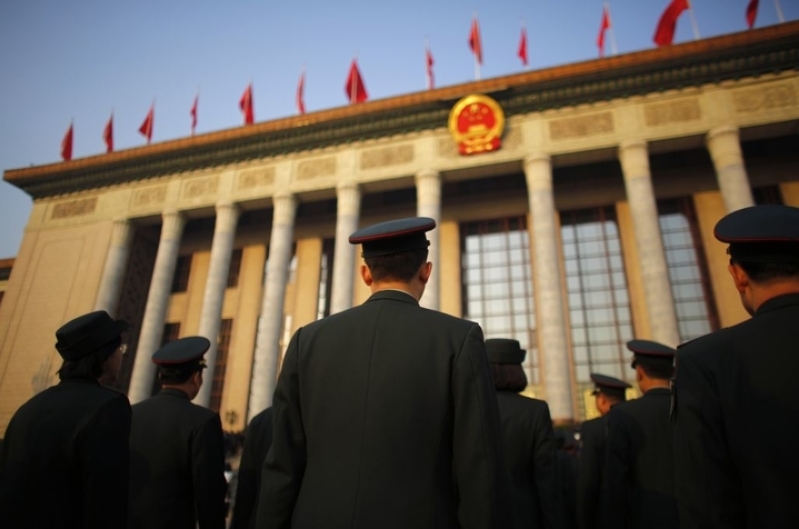
China's official newspaper has warned Communist Party officials not to "pray to God" or "fraternize" with religious leaders, as communism is about atheism.
Reuters reports that on Thursday, the party's official People's Daily said in a commentary that many officials taken down for "corruption" in recent years also participated in "feudalistic superstitious activities."
"In fact, some officials often go to monasteries, pray to God and worship Buddha," it said. "Some officials are obsessed with rubbing shoulders with masters, fraternizing with them as brothers and becoming their lackeys and their money-trees."
The People's Daily said officials must remember Marx's guiding words that "Communism begins from the outset with atheism."
"Superstition is thought pollution and spiritual anesthesia that cannot be underestimated and must be thoroughly purged," it said.
The outlet notes that while China officially guarantees freedom of religion for major belief systems like Christianity, Buddhism and Islam, party members must adhere to atheism.
"Party members should not have religious beliefs, which is a red line for all members", wrote Wang Zuoan, director of the State Administration for Religious Affairs, in the latest issue of the Party's flagship magazine, Qiuishi Journal, according to China's Global Times.
He added: "Party members should be firm Marxist atheists, obey party rules and stick to the party's faith... They are not allowed to seek value and belief in religion."
Wang explained that "foreign forces" are using religion "to infiltrate China" which is a threat to the country's security.
"Some foreign forces have used religion to infiltrate China, and extremism and illegal religious activities are spreading in some places, which have threatened national security and social stability," he said.
Still, Christians have come under increasing pressure as authorities try to force their religion to conform to Communist ideals; over the past year, President Xi Jinping has directed the party to "Sinicize" - or bring under Chinese tradition - the country's ethnic and religious minorities in efforts to counter religious "extremism".
More than 2,000 churches have been demolished in the coastal province of Zhejiang, and police continue to detain hundreds of pastors and human rights lawyers.
However, according to a study from the University of Shanghai, more than 60 percent of students are interested in learning more about Christianity and the number of young believers has been growing in both officially recognized communities and underground churches.
The number of Christians in China (100 million) now exceeds the number of members in the Chinese Communist Party (85 million). Some predict that China will be the most Christian nation in the world by 2030.






